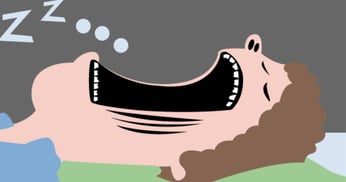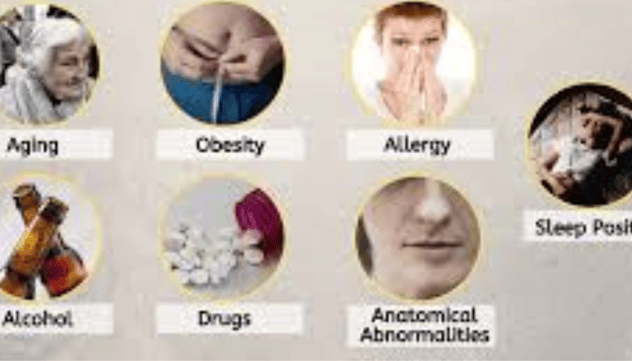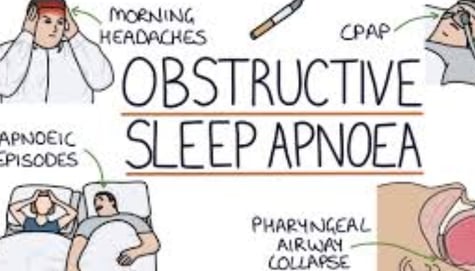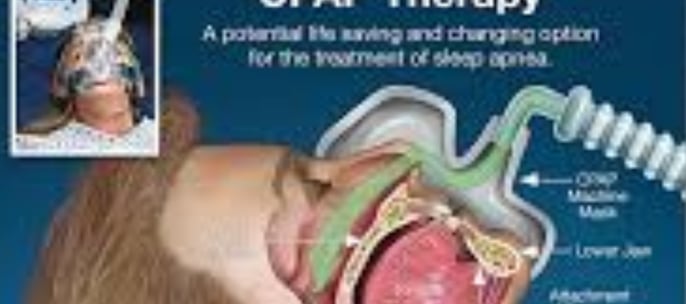
The Impact of Fast on Snoring
Learn about the connection between snoring, weight loss, and fasting, and how it affects respiratory function, high blood pressure, heart disease, diabetes, and memory. Explore solutions like CPAP ...
EAR NOSE AND THROATS OTOLARYNGOLOGY
Dr Hassan Al Warraqi



The Impact of Fast on Snoring
is a hoarse or harsh sound that occurs when air flows through the soft tissues in the throat during sleep.
Snoring occurs when the throat muscles relax during sleep, narrowing the airway.
This can cause the tissues to vibrate, resulting in the snoring sound.
Snoring is very common, with about 30% of adults suffering from it.
Snoring is more common in men than in women, and it becomes more common with age and overnighting.
Snoring may be annoying to your sleeping person,
Snoring can be an indicator of obstructive sleep apnea (OSA),
its a serious sleep disorder that can lead to many health problems, including high blood pressure, heart disease, diabetes, and memory problems.
Causes of snoring
Anatomy: Certain maxillofacial deformities, such as small jaw size or jaw retraction, can cause a narrowed airway during sleep.
Weight gain: Being overweight or obese can increase the soft tissue in the throat, narrowing the airway.
Allergies or cold: A stuffy nose due to allergies or a cold can increase pressure on the upper airway, leading to snoring.
Alcohol: Alcohol can cause the throat muscles to relax, causing the airway to narrow.
Hormones: Hormonal changes, such as those that occur during pregnancy or menopause, can increase snoring.
medications: Some medications, such as sedatives or antihistamines, can cause throat muscles to relax, leading to snoring.
Types of snoring
There are two main types of snoring:
Primary snoring: Snoring that is not related to an underlying medical condition.
Secondary snoring: Snoring that is associated with an underlying medical condition, such as obstructive sleep apnea (OSA).
Obstructive sleep apnea
Obstructive sleep apnea (OSA) is a serious sleep disorder that can lead to many health problems,
including high blood pressure, heart disease, diabetes, and memory problems.
OSA occurs when the upper airway temporarily closes during sleep.
This can cause breathing to stop for 10 seconds or more.
These pauses can occur several times a night, disrupting sleep.
Snoring treatment
There are many things that can be done to reduce snoring, including:
Lose weight if you are overweight or obese.
Avoid drinking alcoholic beverages before bed.
Treat any stuffy nose or throat, such as an allergy or cold.
Sleep on your side.
Use a nasal ventilator or CPAP machine.
Fasting
can help reduce snoring by:
Weight loss: Fasting can help with weight loss, reducing soft tissue in the throat.
Reducing sore throat: Fasting can help reduce sore throat, which may reduce swelling and tightness in the airway.
Improving respiratory function: Fasting can help improve respiratory function, which may help prevent airway obstruction.
Some studies have found that fasting can significantly reduce snoring.
Fasting for 16 hours a day for 8 weeks reduced snoring by haive in people who were overweight or obese.
Muslims fast from dawn to sunset
During this time, they are not allowed to eat, drink, smoke or have sexual intercourse.
Islamic fasting can help reduce snoring.
Intermittent fasting involves fasting for specific periods of time and then eating freely during other periods.
There are many different types of intermittent fasting, but most involve fasting for at least 16 hours per day.
Intermittent fasting can help reduce snoring.
by one third in people who were overweight or obese.
This may be because intermittent fasting can help:
Weight loss
Improving respiratory function may help prevent airway obstruction.
Comparison between Islamic fasting and intermittent fasting
Islamic fasting and intermittent fasting share some similarities.
Both involve fasting for specific periods of time, then eating freely during other periods.
some key differences between Islamic fasting and intermittent fasting.
Islamic fasting begins at dawn and ends at sunset,
but intermittent fasting begins late at night or early in the morning and ends late at night or early in the morning.
Islamic fasting requires Muslims to abstain from eating, drinking, and having sexual intercourse.
while fasting, while intermittent fasting does not require people to abstain from anything other than food and drink.
Which type is most effective in reducing snoring?
More research is needed to compare the effectiveness of Islamic fasting and intermittent fasting in reducing snoring.
Its obvious that islamic fasting is more superior than others.
both types of fasting may have a positive effect on snoring by aiding weight loss and improving respiratory function.
keywords
snoring, weight loss, fasting, respiratory function, Islamic , intermittent , OSA,CPAP, high blood pressure, heart disease, diabetes , memory ,
Snoring, Its Impact on Health, and Its Relationship with Fasting
Snoring isn’t just a nighttime annoyance—it can signal serious health issues!
This comprehensive guide dives deep into the science of snoring, exploring its types, health risks, and intricate connection to fasting.
Optimized for SEO with keywords like "snoring," "health risks," "fasting," and "sleep apnea," it draws from extensive research to deliver actionable insights.
1. Snoring: Definition, Causes, and Types
What is Snoring?
Snoring is a hoarse or raspy sound produced when relaxed throat tissues vibrate during breathing in sleep, particularly during the transition from light to deep sleep phases.
It affects millions globally and can range from harmless to life-threatening.
Causes of Snoring (Surprising and Serious)
Anatomical Factors:
Deviated nasal septum, enlarged tonsils, or a small lower jaw can obstruct airflow.
Fact: 30% of snoring cases stem from congenital respiratory tract abnormalities.
Excess Weight: Fat around the neck compresses airways, narrowing breathing passages.
Lifestyle Habits:
Alcohol and sedatives relax throat muscles, worsening obstruction.
Sleeping on the back causes the tongue to collapse backward, blocking airflow.
Types of Snoring (Which is Dangerous?)
Rhythmic Snoring (Benign):
Caused by soft palate vibration, it’s disruptive to others but poses minimal health risks.
Irregular Snoring (Potentially Deadly):
A hallmark of Obstructive Sleep Apnea (OSA), where breathing stops for 10+ seconds, leading to oxygen deprivation.
2. Health Risks of Snoring: From Stroke to Diabetes
Complications of Obstructive Sleep Apnea (OSA)
Hypertension: OSA increases blood pressure by 45%.
Stroke Risk: Triples the likelihood due to reduced oxygen flow to the brain.
Shocking Discovery: Studies link habitual snoring to a higher risk of prediabetes, especially in those with low cholesterol levels.
Diabetes: Chronic snoring disrupts glucose metabolism, elevating diabetes risk.
Impact on Daily Life
Daytime Fatigue: 70% of OSA patients experience excessive sleepiness, increasing the risk of traffic accidents.
Strained Relationships: 35% of partners report sleep disturbances due to snoring, impacting marital harmony.
3. Fasting and Snoring: A Double-Edged Sword (Helpful or Harmful?)
How Fasting Can Reduce Snoring
Weight Loss: Intermittent fasting burns neck fat, widening airways and easing breathing.
Improved Sleep Quality: Lower blood sugar during fasting promotes deeper, restorative sleep.
Reduced Inflammation: Fasting decreases respiratory tract inflammation, a common snoring trigger.
When Fasting Worsens Snoring
Throat Dryness: Dehydration from fasting thickens mucus, obstructing airways.
Heavy Iftar Meals: Large, late-night meals can cause acid reflux or breathing difficulties, exacerbating snoring.
Golden Tips for Fasting Individuals
Delay Suhoor: Eating closer to dawn keeps the throat hydrated longer.
Avoid Caffeine: It dehydrates the body, intensifying snoring.
Side Sleeping: Use specialized pillows to prevent back-sleeping, reducing airway blockage.
4. Snoring and Chronic Diseases: Medical Advice You Can’t Ignore
Diabetes and Fasting
Warning: Snoring heightens prediabetes risk, and unregulated fasting may cause dangerous blood sugar drops.
Solution: Consult a doctor to adjust medication dosages and timing during fasting.
Heart Disease and Hypertension
Benefit: Fasting can stabilize blood pressure, but OSA patients often require a CPAP device to manage snoring-related risks.
Caution: Untreated OSA increases cardiovascular strain during fasting.
Kidney Disease
Consideration: Fasting is risky for dialysis patients but may benefit those with stable kidney conditions by reducing inflammation.
5. Cutting-Edge Treatments: From Surgery to Smart Devices
CPAP Device: The gold standard for OSA, delivering continuous airflow to keep airways open.
Laser Surgery: Removes excess soft palate tissue in a 30-minute procedure, offering long-term relief.
Simple Solutions:
Nasal Strips: Expand airways for easier breathing.
Mandibular Advancement Devices: Reposition the jaw to prevent airway collapse.
Conclusion
Snoring is more than a nuisance—it’s a potential warning sign of serious conditions like sleep apnea, heart disease, and diabetes.
Fasting can both help and hinder snoring, depending on how it’s managed.
By adopting lifestyle changes, leveraging medical interventions, and following tailored fasting strategies, individuals can mitigate snoring and safeguard their health.
This guide empowers readers with evidence-based solutions to improve sleep quality and overall well-being.
FAQs on Snoring, Health, and Fasting
This FAQ guide provides a detailed exploration of snoring, its health implications, and its relationship with fasting,
keywords like "snoring," "sleep apnea," "health risks," and "fasting." It offers evidence-based answers to common questions, diving deep into causes, risks, and solutions to empower readers with actionable insights.
1. What is Snoring, and What Are Its Main Causes?
Answer:
Snoring is a hoarse or raspy sound produced when air flows past relaxed throat tissues, causing them to vibrate during breathing while asleep.
This typically occurs due to the relaxation of the soft palate, uvula, and throat muscles, which narrows the upper airway.
Primary Causes Include:
Anatomical Factors:
A low soft palate, enlarged tonsils, or deviated nasal septum obstruct airflow.
Small lower jaw (micrognathia) narrows the airway.
Lifestyle Factors:
Alcohol consumption before bed relaxes throat muscles, worsening obstruction.
Sleeping on the back allows gravity to pull the tongue backward, blocking the airway.
Health Conditions:
Obesity leads to fat accumulation around the neck, compressing airways.
Allergies, colds, or sinus infections cause nasal congestion.
Other Triggers:
Chronic sleep deprivation increases muscle relaxation.
Understanding these causes is key to identifying whether snoring is benign or a sign of a serious condition like obstructive sleep apnea (OSA).
2. What Are the Types of Snoring, and Is Snoring Always a Health Risk?
Answer:
Snoring is broadly categorized into two types: rhythmic and irregular.
Rhythmic Snoring:
Occurs consistently with each breath, often caused by soft palate vibration.
While bothersome to others, it’s generally harmless, though it may cause mild symptoms like headaches, poor focus, daytime drowsiness, or dry mouth.
Irregular Snoring:
A key symptom of Obstructive Sleep Apnea (OSA), characterized by intermittent breathing pauses during sleep.
Health Risks: Increases the likelihood of stroke, heart attack, hypertension, type 2 diabetes, and memory issues due to oxygen deprivation.
Is All Snoring Dangerous?
Not every snorer has OSA, but warning signs like gasping for air, excessive daytime sleepiness, morning headaches, sore throat upon waking, difficulty concentrating, or high blood pressure suggest a need for medical evaluation.
Early diagnosis can prevent severe complications.
3. How is Snoring Linked to Prediabetes, and What Other Factors Influence This Connection?
Answer:
Research indicates that habitual snoring is associated with an elevated risk of prediabetes (impaired glucose tolerance) in adults aged 40 and older without diagnosed diabetes.
Study Insights:
The link persists even after adjusting for variables like age, gender, body mass index (BMI), and sleep patterns.
Notably, this association is stronger in individuals with total cholesterol levels below 5.6 mmol/L, suggesting a complex interplay between metabolic factors.
Mechanisms:
Snoring, especially with OSA, disrupts sleep and oxygen levels, impairing glucose metabolism and insulin sensitivity.
Further Research Needed:
Longitudinal studies are essential to confirm these findings and uncover underlying biological pathways.
Factors like obesity, poor diet, and sedentary lifestyles amplify this risk, underscoring the importance of holistic health management.
4. How Does Fasting Affect Snoring, and Can It Be Beneficial or Harmful?
Answer:
Fasting’s impact on snoring varies based on individual health, diet, and fasting practices.
Potential Benefits:
Weight Loss: Fasting, such as intermittent fasting, reduces neck fat, widening airways and easing breathing.
Improved Sleep Quality: Regulated eating schedules and lower blood sugar levels during fasting promote deeper sleep, potentially reducing snoring.
Reduced Inflammation: Fasting may decrease airway inflammation, a common snoring contributor.
Potential Risks:
Throat Dryness: Dehydration from fasting thickens mucus, obstructing airways and worsening snoring.
Muscle Relaxation: Reduced physical activity or caloric intake may relax throat muscles, increasing snoring in some cases.
Heavy Meals: Large iftar meals can trigger acid reflux or breathing issues, exacerbating snoring.
Recommendation: Monitor fasting’s effects on snoring and consult a doctor if symptoms worsen, especially for those with OSA.
5. What Dietary Tips Can Help Reduce Snoring, and Which Foods Should Be Avoided Before Bed?
Answer:
Dietary choices play a significant role in managing snoring.
Recommended Foods:
Anti-Inflammatory Foods: Vegetables, fruits, salmon, and nuts reduce airway inflammation, easing breathing.
Hydrating Foods: Cucumbers, watermelon, and broths keep the throat moist, minimizing mucus buildup.
Foods to Avoid Before Bed:
Dairy Products: Milk, cheese, yogurt, and ice cream contain lactose, which increases mucus production.
Sugary Foods/Drinks: Sweets, sodas, and cookies cause inflammation, worsening airway congestion.
Wheat-Based Products: Bread and pastries contribute to mucus and inflammation.
Processed/Fast Foods: High in additives, they irritate airways and promote congestion.
Heavy Meals: Large dinners cause indigestion, pressing on the diaphragm and hindering breathing.
Fatty Meats: Increase phlegm production, obstructing airways.
Adopting a balanced, anti-inflammatory diet supports respiratory health and reduces snoring severity.
6. How Do Lifestyle and Sleep Adjustments Affect Snoring, and What Are Some Home Remedies?
Answer:
Lifestyle and sleep habits significantly influence snoring.
Effective Adjustments:
Weight Loss: Shedding excess weight reduces neck fat, opening airways.
Avoid Alcohol: Refrain from alcohol at least three hours before bed to prevent throat muscle relaxation.
No Sedatives: Avoid sedatives unless prescribed, as they exacerbate snoring.
Side Sleeping: Sleeping on your side prevents the tongue from blocking the airway, unlike back-sleeping.
Elevate Head: Use an extra pillow to keep airways open.
Treat Nasal Congestion: Address allergies or colds with saline sprays or decongestants.
Stay Hydrated: Drink ample water to thin mucus and reduce obstruction.
Home Remedies:
Nasal Strips: Expand nasal passages for better airflow.
Mandibular Advancement Devices: Reposition the jaw to maintain an open airway.
Humidifiers: Add moisture to the bedroom air, preventing throat dryness.
These changes can significantly reduce snoring frequency and intensity.
7. When Should Someone with Snoring See a Doctor, and What Medical Treatments Are Available?
Answer:
When to Seek Medical Advice: Consult a doctor if snoring is accompanied by:
Temporary breathing pauses (apneas) during sleep.
Excessive daytime sleepiness.
Morning headaches or sore throat.
Difficulty concentrating or memory issues.
High blood pressure.
Loud snoring disrupting a partner’s sleep.
Medical Treatments:
Continuous Positive Airway Pressure (CPAP): The gold standard for OSA, delivering steady airflow to keep airways open.
Oral Appliances: Custom devices from dentists reposition the jaw to prevent airway collapse.
Surgical Options:
Uvulopalatopharyngoplasty (UPPP): Removes excess throat tissue (tonsils, uvula, soft palate).
Soft Palate Implants: Stabilize vibrating tissues.
Jaw or Nasal Surgery: Corrects structural abnormalities.
Laser Therapy: Minimally invasive procedure to tighten throat tissues.
Early intervention prevents complications and improves quality of life.
8. Can Certain Health Conditions or Medications Worsen Snoring?
Answer:
Yes, specific health conditions and medications can exacerbate snoring.
Health Conditions:
Obesity: Excess neck fat narrows airways.
Allergies/Sinusitis: Nasal congestion obstructs airflow.
Jaw Abnormalities: Small or misaligned jaws restrict breathing.
Hormonal Changes: Pregnancy or menopause alters airway dynamics.
Medications:
Sedatives: Relax throat muscles, increasing obstruction.
Antihistamines: Cause drowsiness and muscle relaxation.
Blood Pressure Drugs: Clonidine, perindopril, valsartan, or diltiazem may relax airways or cause fluid retention.
Diabetes Medications: Insulin, sulfonylureas, or thiazolidinediones promote weight gain or fluid buildup, worsening snoring.
Other Drugs: Medications causing dry mouth (e.g., some antidepressants) thicken mucus, contributing to snoring.
Advice: Inform your doctor about all medications and health conditions to tailor a snoring management plan.
Conclusion
Snoring is more than an inconvenience—it can signal underlying health risks like sleep apnea, heart disease, or diabetes.
Fasting can influence snoring positively by aiding weight loss or negatively by causing dehydration. Through dietary changes, lifestyle adjustments, and medical interventions, individuals can manage snoring effectively.
This FAQ guide equips readers with practical strategies to improve sleep and safeguard long-term health.












